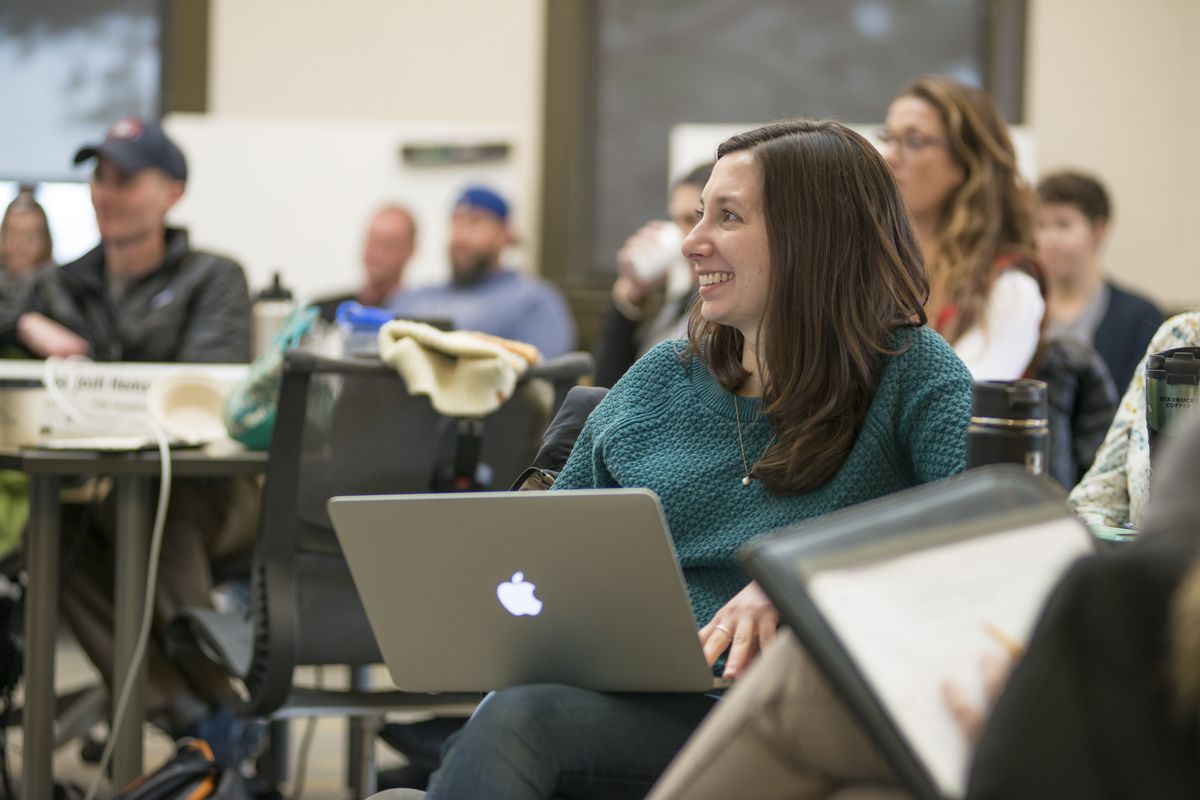Why you need to keep learning
Continuing education is key to a thriving career

Remember when you were a student, anxious to finish school and get out into the real world?
Education meant K-12, followed by a two- or four-year degree for some, and possibly ending with a master’s degree or even a doctorate. But that traditional path is no longer the reality.
Now, you hear educators talking about the “60-year curriculum.” Sound like a lot of school? Maybe not, when you consider longer lifespans, rapidly-changing workplaces and multiple career changes.
“In today’s market, a traditional higher education won’t carry you for your entire work life,” says Rovy Branon, vice provost, University of Washington Continuum College. “Instead, professionals need to engage a lifelong curriculum, with formalized learning woven like a tapestry throughout their working years.”
What’s happening to my job?
The transition from an industrial to a knowledge economy, and now to this current age of automation, where we are increasingly reliant on artificial intelligence and machine learning, is creating new challenges and new opportunities.
“We’re seeing a mix of machines replacing humans, and jobs where people and robots work side-by-side to improve productivity,” says Andrew Hoover, senior director of program strategy with UW Professional & Continuing Education and a former Microsoft senior director.
This education and workforce evolution is contributing to the struggle employers are having with identifying skilled and experienced applicants. Persistent employee turnover compounds the problem, leaving employers with little time to train workers for open jobs. Employers in every industry need people who walk in the door with basic job knowledge and technical skills.
How do I create my own 60-year curriculum?
If your job hasn’t already been impacted by technology, it’s just a matter of time before it is. For example, a job like reading and analyzing X-rays used to take one person hours to do. Now, a machine can do it in seconds.
So, how can you prepare for this new age?
First, be very clear about your work. If you have routine tasks that computers can do, or could do soon, it’s time to determine your next move. Retraining may mean earning a college degree.
But if you already have an undergraduate education, and you don’t want to invest in another degree, there are new ways to skill-up. Certificate programs like those offered by UW Professional & Continuing Education, a UW Continuum College program, are becoming game changers.
“Focus on specific skills to pivot to a new job in the same industry,” Branon says. “Or transition to an adjacent profession. A certificate program can help you become technically competent in areas like data science and programming, or cultivate critical thinking, project management and leadership skills.” All skills valued in today’s market.
Can I balance my current job and preparing for a new one?
Yes! To help working professionals gain some of the most in-demand skill-sets across industries, Branon’s team at the UW launched the Career Accelerator program. The result? A skyrocket in popularity, with 2018 enrollments in Career Accelerator certificates reaching 62 percent above last year’s rates.
Made up of the UW’s most popular business- and technology-focused certificate programs including machine learning, Python programming, data science, data analytics and project management, the Career Accelerator program gives students the choice of four formats: classroom, online, group-paced and self-paced. Self-paced students start anytime and finish as gradually or quickly as they choose.
“We want to help people understand that, increasingly, the 60-year curriculum is an individual’s responsibility and a necessity in the modern workplace,” Branon says. “And then we want to help them achieve success.”
Need-based assistance covering 80 to 100 percent of certificate program fees is available to eligible Washington residents via the UW Certificate Scholarship program.
University of Washington Professional & Continuing Education provides innovative learning paths and serves more than 50,000 students a year in Seattle and around the globe. Visit us online to learn more about Career Accelerator, our latest professional certificate program offered in four formats, providing greater availability for working adults.
